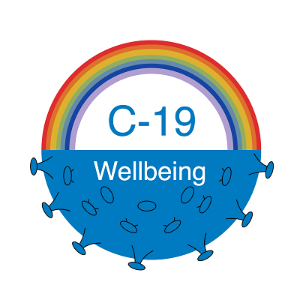
In rapid response to the COVID-19 pandemic, there was an urgent need to understand changes in health behaviours and wellbeing as a result of the sweeping changes to healthcare and restrictions on daily living that happened in a very short space of time.
Pooling research interests and experience across UEA, collaborating across the UEA Addiction Research Group, the Behavioural and Implementation Science group, and the Norfolk Institute of Health Ageing, this study focuses on changes to healthy lifestyle behaviours, as a result of COVID-19 and social restrictions, that may fundamentally impact long-term health outcomes.
The project has been funded by UEA Innovation Funding and the UEA Health and Social Care Partners.
The Study
Ecological Momentary Assessment: We used innovative ‘ecological momentary assessment’ (EMA) methods to track changes in health behaviour daily, by asking our sample to complete a brief survey texted for completion on a smartphone each evening. We collected detailed data for 3 months, over lockdown, completing our intensive tracking in July. Overall, 95% of participants completed at least one daily survey, and overall approximately 70% of daily surveys were completed resulting in around 60,000 in total , representing an extremely detailed cohort for longitudinal analysis, that is underway. We have collected detailed contextual data throughout the study (policy changes and key announcements) and will be using this data alongside more detailed qualitative understanding of the impact of the pandemic on people’s health behaviours.
Follow Up Surveys: We distributed a 3-month, 6-month, 12 and 24 month follow up survey of the cohort, with a follow up rate of > 80%, collecting additional health resource use data and self-reported clinical conditions (diagnosed conditions) to enable us to use the data for long term health economics modelling.
Qualitative Interviews: We have completed our qualitative data collection, interviewing a purposefully selected sample of 40 participants, so that we can better understand the nuances in influence and contextual limitations that may have impacted health behaviours.
Photo Elicitation Study: In addition to the main study, we have recently conducted an optional photo project where participants were invited to submit photos which represented their experience of lockdown and pandemic living.
Information for participants
Thank you to those who signed up for the study and completed daily surveys! This study is now closed to new participants.
Outputs and impact
Lockdown Voices
'Lockdown Voices' is a public communication event created to mark the first anniversary of the pandemic restrictions using audio and written quotes from the study to pay tribute to the public’s experiences. Lockdown Voices can be accessed here.
Academic publications
Sep 2023: Lest we forget. Illuminating lived experience of the Covid-19 pandemic and lockdown
Jul 2020: Preliminary findings on the effect of lockdown on changes in nutrition and dietary behaviour among the cohort were included in Defra’s National Food Strategy: Part One.
Presentations
Feb 2021: UEA School of Heath Sciences Seminar; Dr Felix Naughton; Did Lockdown 1.0 Change Lifestyle Behaviours? Findings from the Covid-19 Health and Wellbeing Tracker Study.
In the media...
There was widespread coverage of our January 2021 paper which featured on Sky News and in over 320 additional media outlets, including: The Independent, The Daily Telegraph, Daily Express, MailOnline, The i paper. For links to a selection of news items click here.
Early on our study gained media attention with relation to eating behaviours during lockdown in a BBC article.
Find out more

)